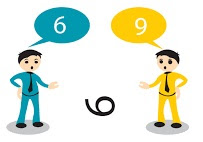Avoiding impulsive decisions( Contd..)

Taking timeout for responding:
Except for emergencies, not all business decisions call for immediate reaction or response. We can take time out to make the decision. One of the benefits of taking timeout is that the time makes us think about the alternatives or choices for solutions. When we are making decisions impulsively, we feel as if there is no alternative.
When we give time ourselves, we are thinking about both rationally and emotionally. We are in a position to generate the options and able to evaluate the pros and cons of the options.
Typically we come across situations when dealing through emails. We used to react to mail communication immediately as impulsive and later realized that we could have taken timeout to respond with different choices. Sometime back, i have shared my experience on impulsive way of reacting to email as given in the link.
https://lifeexcellenceinsights.blogspot.com/2019/05/lessons-learned-on-email-communication.html
It just needs the ability to distinguish which decisions call for immediate attention and which decisions can be delayed. Not all workplace decisions need the same level of urgency!
Getting the perspectives from elders or mentors:
The next practical method is to get a perspective from others or mentors on important personal or business decisions. The obvious reason is that when we are emotionally overwhelmed with the problem, we may not see it from the other dimensions. Others could see it from a different perspective because they are not emotionally attached.
Most of us might have experienced that when we were about to make an impulsive decision due to emotions, and when we discussed with others, they provided us simple, rational solutions to the problem.
It requires that we need someone to share the concerns and get different rational perspectives than making impulsive decisions and struggling with the consequences.





